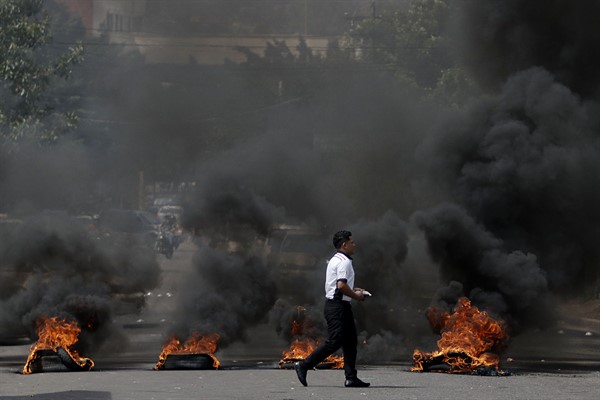On Nov. 28, Hondurans will head to the polls for one of the most consequential elections in the country’s history. After the 2017 polls were marred by fraud and violence, voters face a stark choice between a corruption-plagued ruling party that has enabled Honduras’ transformation into a violent narco-state on one hand, and an uncertain future on the other.
The main opposition candidate, Xiomara Castro of the progressive Liberty and Refoundation Party—or Libre, as it is known in Spanish—will try to break the National Party’s 12-year stranglehold on power. The wife of former President Manuel Zelaya, who was deposed in a coup in 2009, Castro lost the 2013 presidential election to the current president, Juan Orlando Hernandez. She was also Libre’s presidential candidate in 2017, but she stepped aside when her party formed an alliance with the center-left Innovation and Unity Party, then led by Salvador Nasralla. Though widely believed to have won the 2017 election, Nasralla was denied the presidency amid widespread irregularities. Castro will face National Party candidate Nasry “Tito” Asfura, a former lawmaker and incumbent mayor of the capital, Tegucigalpa. Asfura is currently under investigation for allegedly embezzling more than $1 million of municipal funds.
Castro has gotten a boost in recent weeks, as nearly all of the main opposition parties have thrown their support behind her campaign. Nasralla and his current party, the National Opposition Union or UNO, got behind her on Oct. 13, as did Luis Zelaya, the 2017 candidate from the centrist Liberal Party, who conceded to Nasralla at the time and also demanded that Hernandez concede. Other opposition parties then followed suit in shifting their support to Libre. Liberal Party candidate Yani Rosenthal, who recently completed a prison term in the United States for laundering drug money, is trailing in the polls, making it virtually a two-horse race.

